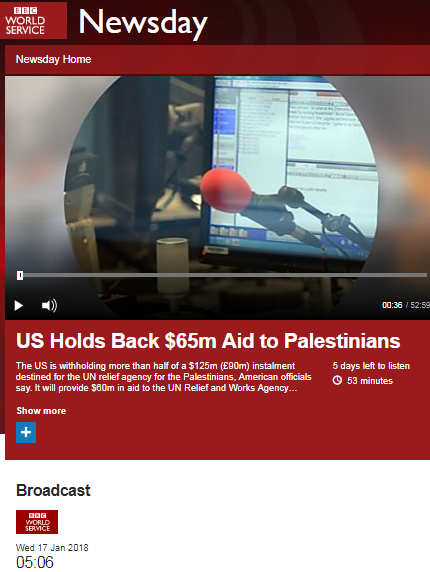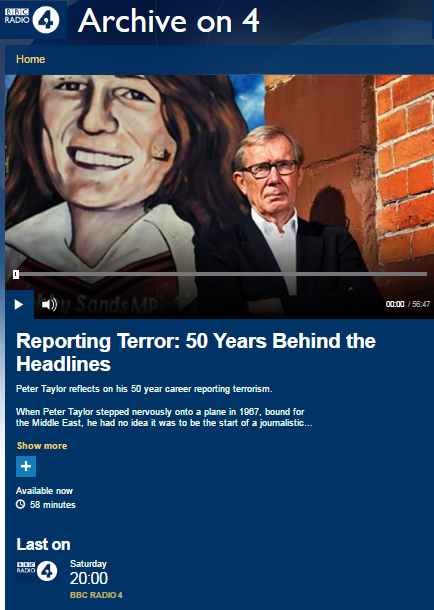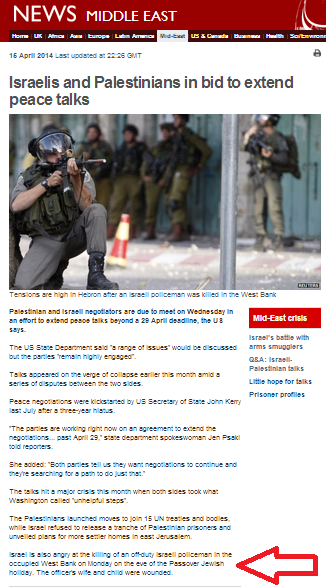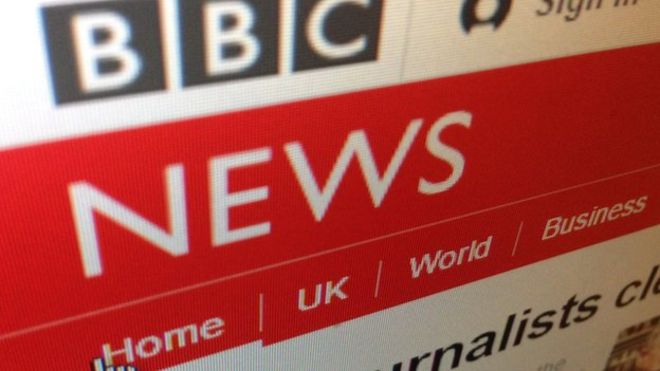The top story in the various editions of the BBC World Service radio programme ‘Newsday‘ aired on January 17th was described as follows:
“The US is withholding more than half of a $125m (£90m) instalment destined for the UN relief agency for the Palestinians, American officials say. It will provide $60m in aid to the UN Relief and Works Agency (UNRWA) but will hold back a further $65m.”
In the early edition of that programme, listeners around the world heard from two contributors voicing similar opinions. The item was introduced (at 00:48 here) by presenter Paul Hawkins as follows: [emphasis in italics in the original, emphasis in bold added]
Hawkins: “But first to the news that the US is withholding millions of dollars in aid for the UN relief agency for Palestinians known as UNRWA. The White House has sent $60 million in its kind of first installment of 2018 but it’s withholding the remaining $65 million and has urged other countries to pay more. The US is UNRWA’s largest donor and supplies nearly 30% of its total budget of over a billion dollars. Here’s the reaction of Jan Egeland, a former UN undersecretary general and current head of the Norwegian Refugee Council.”
Despite the BBC’s editorial guidelines on impartiality, as is all too often the case listeners were not given any information regarding that NGO’s political agenda and activities before they heard its representative speak.
Egeland: “This is horrible news for us who are actively trying to provide humanitarian relief in the Middle East to all parties including to Palestinian refugee children. UNRWA is the number one provider of education, health care, even food and shelter for Palestinian refugees and their children: people who in Gaza, in Lebanon, in Syria have nowhere else to go, no job opportunities, no hope. It is a dangerous politicisation of humanitarian aid that grown, well-fed politicians and diplomats say we will now cut relief to the most vulnerable people because we disagree politically on, for example, the future of Jerusalem. Cannot do like that.”
Later on in the same programme (at 18:30) Hawkins returned to the same topic and after a short introduction, brought in UNRWA spokesperson Chris Gunness.
Hawkins: “First of all the US State Department says that this decision is not aimed at punishing anyone, it’s not punitive and they just simply want your agency to reform itself. Do you believe them?”
Gunness: “Well first of all let me say that this reduction of US funding is regrettable, it is abrupt and it is harmful. The decision threatens one of the longest standing, most successful and innovative human development endeavours in the Middle East and at stake is the access of over half a million boys and girls to over 700 UNRWA schools. At stake is the dignity and the human security of millions of Palestine refugees. We tend to the sick, the elderly, the dying, the vulnerable children and women. So that is what is at stake: nothing less than the security and stability of the Middle East.
As far as reform is concerned, UNRWA has always been open to reform and the United States, most recently to our commissioner-general on a visit to Washington in November, was fulsome in its praise of UNRWA and its reforms. We remain committed to reforms but we have to say that this decision is extremely worrying because at stake is, as I say, the dignity, the human security of millions of Palestine refugees.”
Despite the rosy picture painted by Gunness, past US donations to UNRWA have not come without conditions and criticism.
Hawkins: “Well you say you remain committed to the reforms – it seems like the current White House administration is fed up with the agency being committed to reforms but not actually following them through. We’ve spoken to one expert who’s heard from the White House that UNRWA…when the US provides around $200 million a year to UNRWA, the agency burns through the budget within its first eight to ten months and then it has to go round asking for more money and this is the kind of thing that the US is a bit fed up with.”
Gunness: “Well as I said the US has consistently commended our high impact, our transparency and our accountability and as I’ve just said this was reiterated once again during the visit to Washington last November. The reason why, as you say, we burn through our budget is that the number of refugees continues to grow. The vulnerabilities they face in places like Gaza – because of the blockade – in Syria – because of the war that is now in its 7th year – and in the West Bank where the occupation is 50 years old. The reason why the budget of UNRWA goes up is because the numbers are going up and what we say to all stakeholders of the political echelon is what will stop this and what will put UNRWA out of business is a just and durable solution for the refugees in accordance with international law and based on UN resolutions. That is what is going to obviate the need for UNRWA to – as you put it – burn through the budget. So let’s get some political action to resolve the refugee issue because year on year the numbers are going up and there is increasing demand therefore our budget goes up.”
Hawkins made no effort to help listeners understand what part UNRWA’s unique policy of automatically awarding hereditary refugee status plays in causing the number of Palestinian refugees to rise, why refugee camps still exist in areas under the control of the Palestinian Authority and Hamas or why Palestinians with Jordanian citizenship are still classified as refugees.
Hawkins: “Just very quickly because we’re running out of time, Chris – apologies for that – but there’s also been a few questions raised about UNRWA’s…about the money that UNRWA provides – a lot of it going to political activity and what some may think is a questionable use of funds.”
Gunness: “Well we are one of the most audited of UN organisations on the planet. We maintain the highest standards of neutrality. The aid pipeline which we have is…it guarantees…I don’t understand where you say…I don’t understand where these accusations are coming from. Our funds are used for the purposes they’re intended for and that is a matter of public record and it’s something which we achieve to the satisfaction of all our major donors.”
The interview ended there, with no further questioning of Gunness’ (frequently touted) claims of “neutrality” despite his own well-documented activities and the agency’s record of political advocacy.
Once again, BBC audiences heard nothing of the UNRWA employees who were elected to the Hamas political bureau, of the Hamas tunnels dug underneath UNRWA schools or of the antisemitic incitement posted on social media by UNRWA employees.
That, however, was not Gunness’ only interview on ‘Newsday’ on that particular day and his second appearance will be discussed in part two of this post.
Related Articles:
BBC News report on UNRWA funding story omits relevant background
BBC World Service amplifies UNRWA’s political campaigning yet again
Lyse Doucet’s blatant political propaganda on BBC WS WHYS – part two
BBC WS ‘Newshour’ provides a platform for UNRWA’s political campaigning




